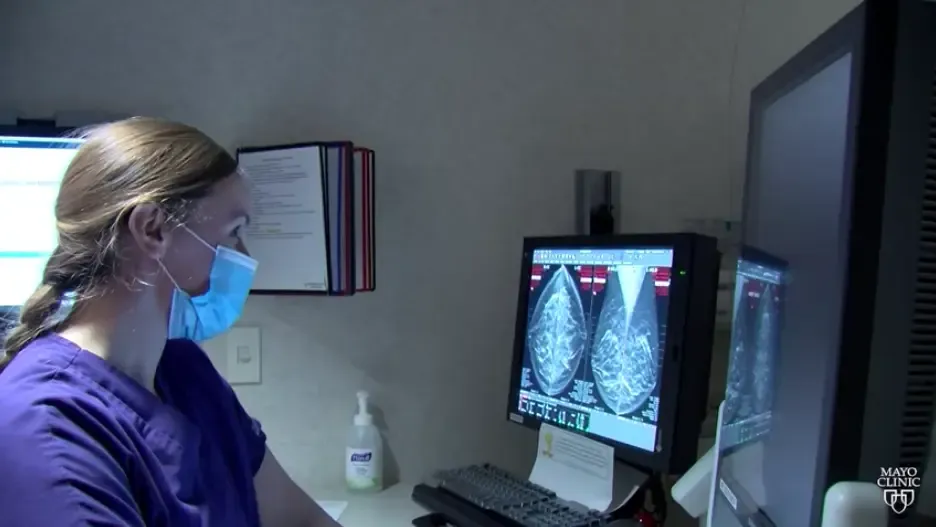This content is courtesy of Mayo Clinic, the No. 1 hospital in the nation according to U.S. News & World Report. Minnesota Oncology is a member of the Mayo Clinic Care Network. This relationship provides us with access to information, knowledge and expertise from Mayo Clinic.
April is recognized as National Cancer Control Month, dedicated to raising awareness for cancer prevention and treatment.
One of the best tools to prevent cancer is regular screening. Dr. Christine Klassen, director of the Mayo Clinic Breast Clinic, says mammograms are a good example.
"Early diagnosis is going to give patients the best outcomes. We know that if a tumor is caught early and it's still contained in the breast, that outcomes are really very good," says Dr. Klassen.
And early diagnosis usually starts with a mammogram.
"Screening mammogram is still our standard recommendation for breast cancer detection. And we do recommend that screening mammograms be done regularly every one to two years," she says.
Mayo Clinic recommends mammograms begin at age 40. And, for patients with dense breasts, Dr. Klassen recommends additional screening.
"There are several options for women who have dense breast tissue to do a little bit additional imaging and help the radiologist really see if there's anything small occurring in the breast."
Dr. Klassen says 1 in 8 women will develop breast cancer in the U.S. And it's important that all have access to regular screening.
"By giving women the opportunity to have that routine screening mammogram on a regular basis, we're going to improve their outcomes."




